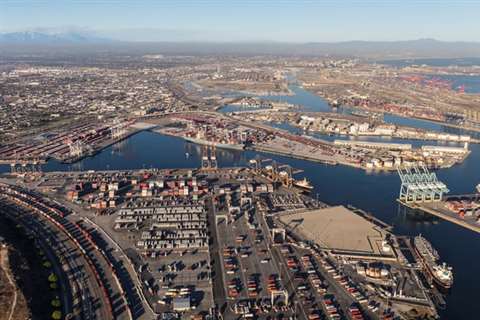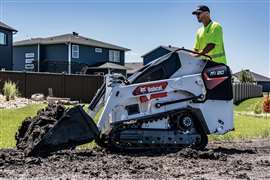Shipping company hit with emissions fine
24 February 2022
Auxiliary engine use cited
The California Air Resources Board reached a settlement agreement with Wan Hai Lines (USA) Ltd. for US$680 750 for violations of the Ocean-Going Vessels At-Berth Regulation that aims to reduce diesel particulate matter and oxides of nitrogen from ocean-going vessels auxiliary engines while they are docked at California ports.
The violations were found during a routine audit by CARB’s Enforcement Division of fleets visiting California ports in 2020. The audit revealed that Wan Hai failed to reduce its fleet auxiliary engine power generation by at least 80% while docked at the ports of Los Angeles and Long Beach and failed to meet the three-hour operational time limit for at least 80% of its fleet’s visits. The operational time limit caps the number of hours a vessel may run its engines while in port to a maximum of three hours.
“I commend our Enforcement Division on their diligence in finding these violations that contribute to California’s air quality challenges, especially in port areas that are predominantly comprised of disadvantaged communities that bear a disproportionate health burden,” said CARB Executive Officer Richard W. Corey. “We appreciate that Wan Hai made significant efforts to come into compliance and correct the violations immediately to reduce their fleets’ emissions.”
 CARB settles with Wan Hai Lines for ocean-going vessel violations.
CARB settles with Wan Hai Lines for ocean-going vessel violations.
Wan Hai’s settlement includes a US$340 375 civil penalty and US$340 375 in funding for two Supplemental Environmental Projects. Nearly US$300 000 will fund the installation of an air filtration system in Oakland schools with the remaining US$40 777 going to fund an air filtration system at Murchison Street Elementary School and Murchison Early Education Center in Los Angeles.
The original Ocean-Going Vessel At-Berth Regulation was adopted in 2007 with compliance requirements that began in 2014. The regulation affects container ships, passenger ships and refrigerated-cargo ships at six California ports including Los Angeles, Long Beach, Oakland, San Diego, San Francisco and Hueneme. Compliance requirements for vessels include visit requirements and emission or power reduction requirements both which were phased in over time to the current 80% reduction requirement.
POWER SOURCING GUIDE
The trusted reference and buyer’s guide for 83 years
The original “desktop search engine,” guiding nearly 10,000 users in more than 90 countries it is the primary reference for specifications and details on all the components that go into engine systems.
Visit Now
STAY CONNECTED




Receive the information you need when you need it through our world-leading magazines, newsletters and daily briefings.
CONNECT WITH THE TEAM













